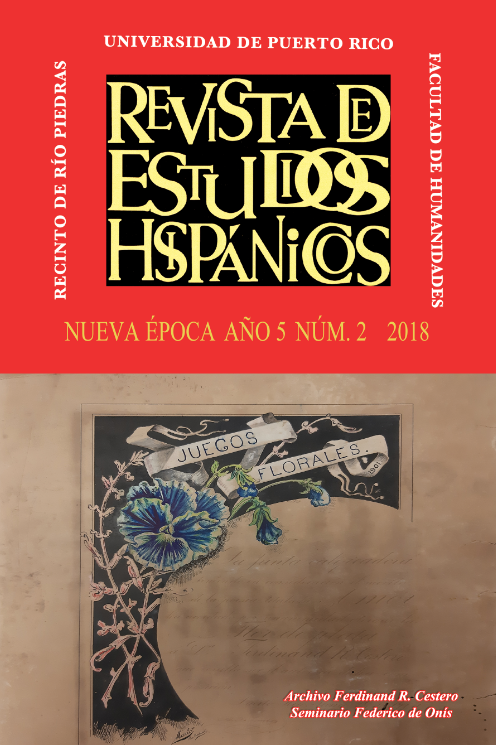Abstract
La comedia nueva o El café by Leandro Fernández de Moratín represents one of the last texts about the theme of theatrical reform which was widely debated in Spain during the 18th century. In this article, we analyze the transformation of public opinion through Feijoo‘s ideas in 1726, the Esquilache Riots, and the idealization of judgement at the hands of a public acting as judge coinciding with the reformist postulates of the philosophes in relation to Moratin‘s work. On the one hand, Moratin‘s literary technique follows the literary tradition of grotesque imagery, having the double effect of both entertaining as well as educating. On the other hand, both of these effects suppose the elaboration of a strategy to dominate individuals, controlling public opinion. Moratin‘s work thereby argues over who should occupy the public space of the café, how they should occupy it, and what activities should be held there.This work is licensed under a Creative Commons Attribution-NonCommercial 4.0 International License.
Downloads
Download data is not yet available.

